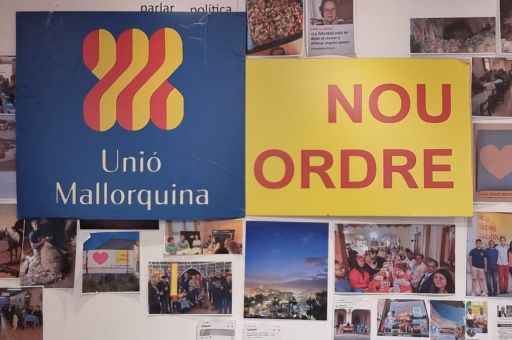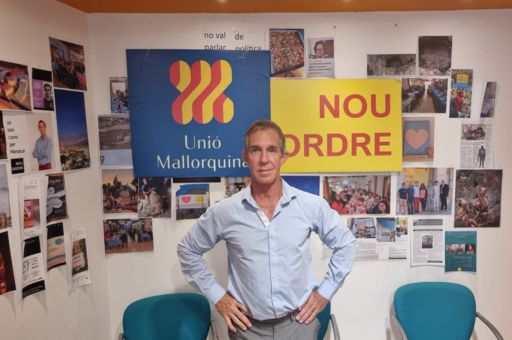With a career marked by closeness to the public and years of experience in politics, Pedro Durán today stands out as one of the most visible faces of Unió Mallorquina (UM) in Manacor. Durán advocates for a project that combines Mallorcan identity with pragmatic solutions to everyday challenges: public transport, housing, services, and above all, quality of life.
The headquarters of Nou Ordre and Unió Mallorquina are located at the corner of Carrer del Sant Crist and Avinguda d’Antoni Maura in Manacor. It also offers residents a WhatsApp number — 622 686 306 — where they can raise questions and receive solutions.
TDB keeps you informed. Follow us on: Facebook, Twitter and Instagram
Pedro Durán in recent weeks, we’ve seen the Unió Mallorquina logo appear at Nou Ordre’s headquarters. Can you explain what is happening at Nou Ordre and its relationship with UM?
Indeed, the reactivation of Unió Mallorquina is now an open secret. At Nou Ordre, we unanimously agreed to fully support the revival of this party in Manacor. Our total support for Unió Mallorquina came after conducting a thorough analysis.

What principles of Unió Mallorquina convinced you to join?
It’s defence of Mallorcan identity — language, traditions, and customs — but above all, its way of doing politics: close to the people, practical, and willing to listen. Unió Mallorquina seeks agreements that truly benefit citizens.
Since when have these negotiations between the two parties been taking place?
The first contact with Unió Mallorquina took place in May, and from that moment, collaboration between the parties has been fluid and almost daily.
This is undoubtedly an important agreement for both parties. What conclusions do you draw from these months of negotiations?
That most Mallorcans long to see a model similar to that of Coalición Canaria implemented in the Balearic Islands — a model that has successfully brought together political forces, reached the Spanish Parliament, and gained decision-making power to defend its island territory, its unique culture, and the well-being of its people.
What would you say has been, so far, the greatest achievement and the greatest failure of the current government team?
As I always say, I believe they are doing the best they can, and for that alone they deserve respect. However, the management shortcomings and the legal uncertainty projected by our town hall are alarming. I consider their greatest achievement to be the municipal festivals held across the different towns, although they can sometimes be excessively noisy late into the night. As for their greatest failure, I believe the tragic death of a child in a traffic accident may have been influenced by poorly maintained road markings, which are clearly defective throughout the municipality. Another major failure is the public statement issued by a company demanding urgent reforms in Manacor’s urban planning department, citing serious harm caused. This cannot be allowed to happen.
In previous interviews you mentioned streamlining bureaucracy, providing legal certainty to citizens and businesses, improving urban areas, lighting, signage, creating parking spaces, and enhancing public transport. Are these priorities still in place?
They remain absolutely in place. Manacor needs to connect the town hall with the demands of its residents, and UM–Nou Ordre is the only tool that can achieve this after the 2027 elections. Once Manacor’s town hall transforms into an effective management instrument, all the municipality’s districts will see significant improvements, and the proposals promoted by Nou Ordre in its information campaigns will be carried out.
Furthermore, I am convinced that UM will once again gain sufficient parliamentary and island representation to become a decisive party, which will greatly benefit municipalities across Mallorca — as already happened in Manacor during the tenure of Mayor Miguel Riera (UM–ALM), when major public infrastructure investments were made: complete renovation of the Passeig de na Camel·la, construction of underground parking lots, improvement of Plaça del Mercat, the road connecting the Portocristo entrance to Cala Anguila, the bike lane linking Portocristo to Cala Anguila, another bike lane parallel to the road to s’Illot, and many more initiatives.
